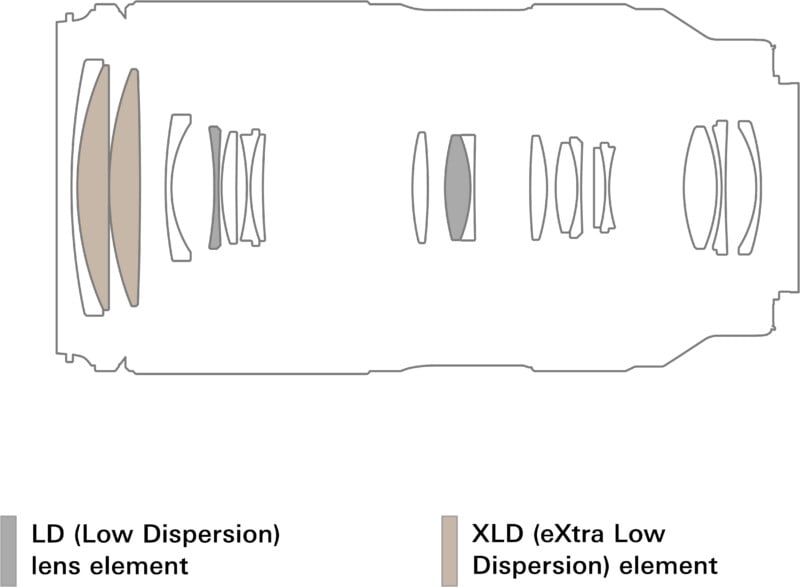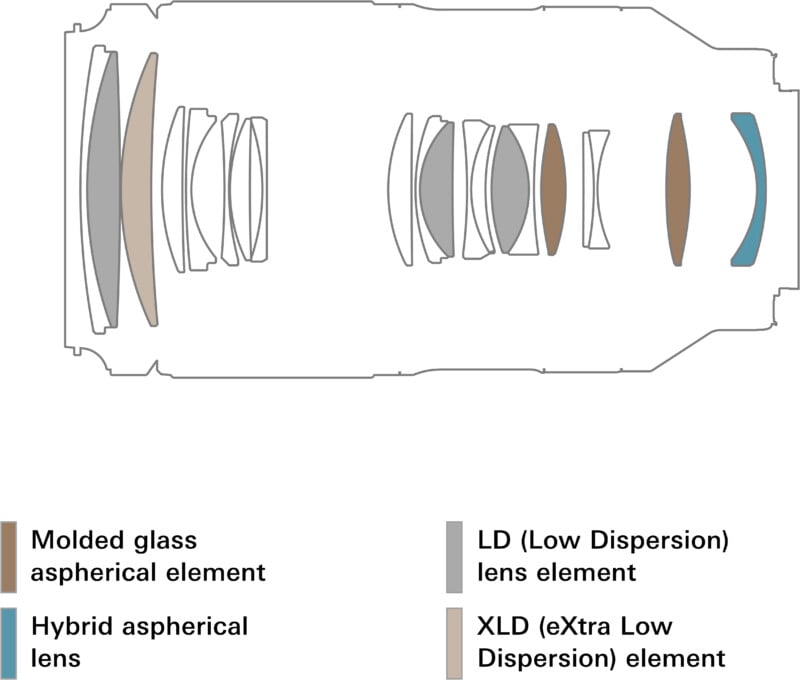Tamron Appears To Be Developing a 50-200mm f/2.8 Lens
![]()
According to patent documents filed in Japan, Tamron is working on a fast lens with a huge zoom range. The proposed 50-200mm f/2.8 would be the first of its kind, offering a massive range with no cost to light gathering capability pro-level 70-200mm lenses provide.
As spotted by Asobinet after being published on Japan’s patent platform, the new lens has been in development since at least 2022, when Tamron applied for the patent. It was only granted this week.
The company says that with the growth of the mirrorless camera market, there is a high demand for a zoom lens that has a large range, does not lose its light gathering capability through that range, and that doesn’t greatly change in its weight distribution and length throughout that range. Tamron also plans to include a host of corrective optics inside the arrangement, providing photographers with few visual aberrations.
The result is a lens that would theoretically perform as well as modern 70-200mm f/2.8 lenses but provide a wider field of view, too.
It’s also important to point out that Tamron intends to have the lens extend only slightly in that massive range, as the diagram of the optical formula above shows, without compromising optical performance at any point. Tamron has done a fabulous job with its modern zoom lenses, but this would be an achievement above and beyond what it has already managed to accomplish. What Tamron is proposing here won’t likely be “small” thanks to the hefty amount of glass it contains, but it is certainly more compact than many might think.
It’s difficult to look at the forumla above and contextualize it, so below are a couple of Tamron’s current lenses that have large zoom ranges but, notably, less complicated optical designs. What should be clear from comparing them is that what Tamron is going for here is not easy.


The closest modern comparison to Tamron’s proposed design is another Tamron lens, the 35-150mm f/2-2.8. That’s already considered a fantastic optic but Tamron seems poised to take modern designs one step further — as shown above, the new patent shows an even more complicated optical structure than the 70-180mm f/2.8 or the 50-300mm f/4.5-6.3, both of which feature at least 19 internal elements.
While the zoom range isn’t as impressive, Canon’s recent 24-105mm f/2.8 is also quite impressive, and it — along with this new Tamron design patent — shows that companies are able to make impressive zoom lenses that are simultaneously far faster and much lighter than they could in the DSLR era — just look at the gargantuan Sigma 200-500mm f/2.8. Ditching the mirror has opened the door to some of the most expansive optics photographers have ever seen, and companies — like Tamron — aren’t done pushing the envelope.